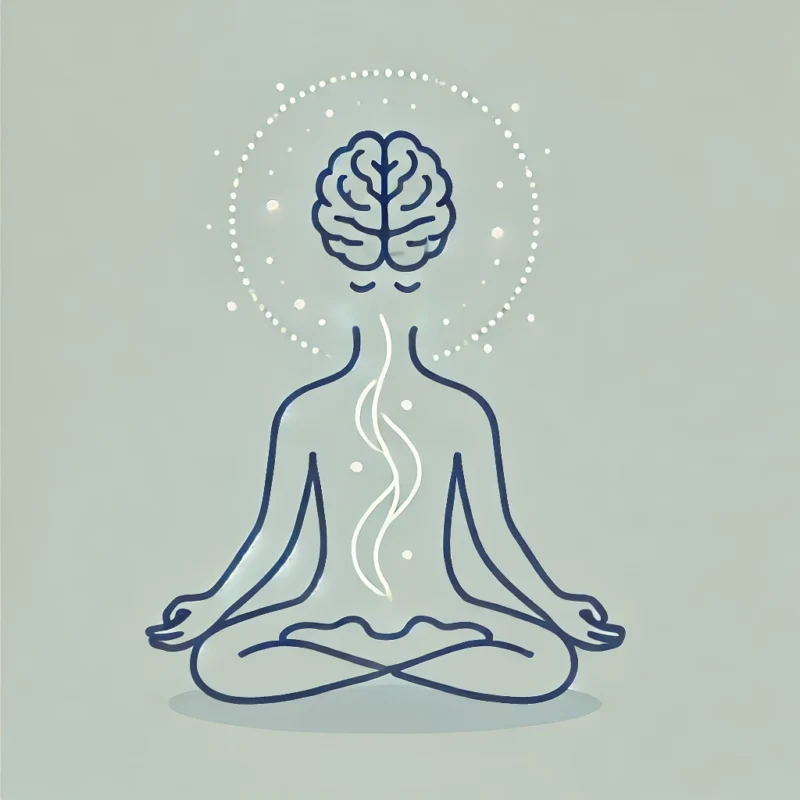Breathwork for Mental Health Wellbeing: What Are the Benefits?

What Is Breathwork, and How Does It Impact Mental Health?
Breathwork is more than just deep breathing it is a method of therapeutic practice that involves controlled breathing in order to allow physiological and psychical well-being. Science is increasingly showing that health benefits of breathwork, and how it can reduce levels of stress, decrease symptoms of anxiety and depression, and allows a person to have better emotional resilience. Breathing controls the autonomic nervous system, hence allowing control of levels of stress or responses towards particular emotions.
If you want to learn more about how breathwork works with your body on a physiological level, read our article Science of Breathwork and the Nervous System
Mental Health Benefits of Breathwork
1. Reduces Stress and Anxiety

Chronic stress and anxiety strain mental and physical health. Breathwork naturally reduces stress by calming the mind and lowering cortisol levels.
- Learn How Proper Breathing Can Decrease Stress and Anxiety for more information
2. Enhances Mood and Reduces Symptoms of Depression
Controlled breathing can naturally boost the body’s “feel-good” hormones, lifting your mood and easing feelings of depression. With regular practice, breathwork also helps balance serotonin levels, supporting a steady, more positive emotional state.
- Check out our article on Breathwork for Depression to find out more.
3. Boosts Focus and Mental Clarity

Breathwork increases oxygen flow to the brain, which can improve focus, enhance memory, and increase cognitive function. By centering attention on each breath, you also cultivate mindfulness, which reduces distractions and boosts mental clarity.
- Find out how Breathing for Focus and Clarity can sharpen your concentration and improve cognitive performance.
4. Supports Emotional Resilience and Calm

Practicing breathwork strengthens emotional resilience, equipping you to handle challenging situations more calmly. Over time, consistent breathwork can make you more responsive rather than reactive, allowing you to manage stress more effectively.
- Article: Understanding Heart Rate Variability (HRV) and its Link to Emotional Resilience for insights on breathwork’s role in developing emotional stability.
How Breathwork Affects Mental Health:
Breathwork affects the sympathetic and parasympathetic nervous systems, which regulate the body’s fight-or-flight response and the rest-and-digest response. If you breathe slowly and take deep, controlled breaths, you seem to make the sympathetic nervous system less active and allow the parasympathetic to dominate more. This change lowers your heart rate and blood pressure, making you relaxed and better from a mental health perspective.
Read How Breathing Affects Mental Health for scientific insights and techniques on how breathing practices impact mental health.
Integrating Breathwork into Your Daily Routine
Consistent practice is key to experiencing the full mental health benefits of breathwork. Try incorporating these exercises into your morning routine, during work breaks, or as part of your wind-down at night. Just a few minutes a day can make a noticeable difference.
Further Reading: Explore 5 Quick Breathing Exercises You Can Do Anytime, Anywhere for more easy-to-follow exercises you can integrate into your day.
Breathwork Courses and Training
And for those who want to go more in-depth in work with breath, Breatheology offers special courses in using advanced breathing techniques to improve mental and emotional health.
Available Programs:
- Breatheology Essentials: A comprehensive course that introduces the foundational techniques for breath mastery and mental clarity.
- Free Courses: Introductory classes that teach you how to leverage breathwork to manage stress and improve well-being.
- Breath Hold Masterclass: Dive into the science and practice of breath-holding, a powerful tool for building resilience and self-control.
Real Stories: How Breathwork Transformed Mental Health
Numerous individuals have used Breatheology techniques to manage stress, overcome anxiety, and find mental balance. For example, athletes, corporate leaders, and everyday practitioners share inspiring testimonials on how breathwork transformed their mental well-being.
Inspiring Case Studies:
- Case Study: Tyler Huston: How breathwork helped Tyler improve focus and manage stress.
- Case Study: Helle Lengsholm Pettersen: Discover how breathwork played a role in Helle’s journey toward mental clarity and emotional balance.
Ready to Transform Your Mental Health through Breathwork?
Breathwork offers a simple yet profound way to enhance mental health, reduce stress, and foster emotional resilience. Whether you’re just beginning your journey or looking to deepen your practice, Breatheology provides the tools and training you need.
Take the first step towards a healthier mind with Breatheology’s Breathwork Courses or try our free resources to experience the benefits of breathwork for yourself.
Conclusion
Breathwork is a powerful and natural way to promote mental health. Through regular, controlled breathing practices, one can effectively decrease stress, improve their mood, and get better emotional stability. With both immediate and long-term benefits, breathwork becomes an all-too-important tool for improving mental health.